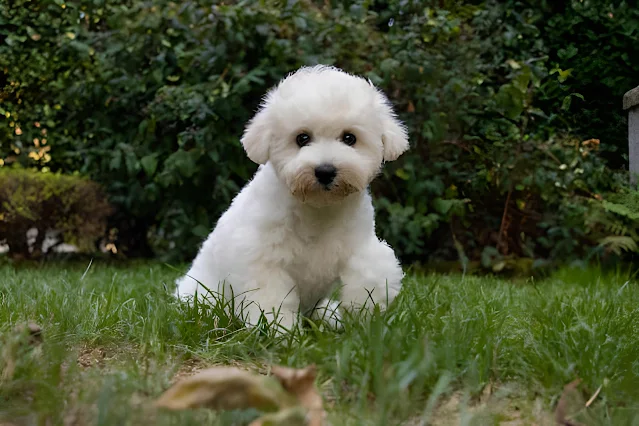The Bichon Frisé is a small, cheerful dog that has been popular in France for centuries. Today, they are beloved companions all over the world. Though they may be small, they have big personalities and require regular grooming to keep their coats healthy and looking their best. In this complete guide, we will cover everything you need to know about how to groom a Bichon Frisé, from the history of the breed to their exercise needs.
The History of the Bichon Frisé.
The Bichon Frisé is a small, fluffy dog that originates from the Mediterranean region. The exact origins of the breed are unknown, but it is thought to be a descendant of the Barbet or water spaniel. The Bichon Frisé was popularized in France during the Renaissance, where they were known as "Bichons à poil frisé" or "curly-coated lap dogs".
The Bichon Frisé in Popular Culture.
The Bichon Frisé has been featured in many works of art and literature over the centuries. In the 1500s, Italian artist Giuseppe Arcimboldo painted several portraits of people with their faces made entirely out of Bichons Frisés. In France, the breed was popular among nobility and royals, including King Louis XVI and his wife Marie Antoinette. The Bichon Frisé has also been featured in films such as Disney's "Lady and the Tramp" (1955) and "The Truth About Cats & Dogs" (1996).
Bichon Frisé Physical Characteristics.
The Bichon Frisé is a small dog breed, typically weighing between 10 and 18 pounds. They stand 9 to 12 inches tall at the shoulder. Males are usually larger than females.
Coat and Coloring.
The Bichon Frisé has a thick, curly coat that can be either white or cream-colored. The hair is soft and fluffy, and does not shed much. The breed is hypoallergenic, making it a good choice for people with allergies.
Temperament.
Bichon Frisés are cheerful, playful dogs that get along well with children and other pets. They are intelligent and easily trained, but can also be stubborn at times.
Bichon Frisé Grooming Requirements.
Bichon Frisés have a double coat consisting of a soft, fluffy undercoat and a coarser, tougher outer coat. The undercoat is prone to matting, so it's important to brush and comb your Bichon Frisé regularly to prevent mats from forming. A slicker brush or a pin brush is best for removing tangles from the undercoat, while a comb can be used to remove any remaining tangles.
Shampoo and Conditioner.
Bichon Frisés should be shampooed and conditioned at least once a month to keep their coats healthy and free of tangles. A hypoallergenic shampoo is best for this breed, as they are prone to skin allergies. Be sure to rinse the shampoo and conditioner out thoroughly to avoid irritation.
Ear Cleaning.
Since Bichon Frisés have long, floppy ears, they are prone to ear infections if their ears are not kept clean. Ear cleaning should be done at least once a week, using a cotton ball soaked in warm water or an ear cleansing solution. Gently wipe the inside of the earflap and the ear canal itself, taking care not to insert anything into the ear canal itself.
Nail Trimming.
Bichon Frisés' nails should be trimmed every two weeks or so, using either dog nail trimmers or human nail clippers. If you're not comfortable doing this yourself, you can take your dog to a groomer or vet for nail trimming services. Be careful not to cut too close to the quick (the blood vessel in the nail), as this can cause pain and bleeding.
Anal Gland Expression.
Anal gland expression is something that should be done by a professional groomer or vet, as it can be difficult (and messy) to do correctly at home. This procedure involves manually emptying the anal glands, which can become full of fluid and cause discomfort for your dog if left unchecked.
Bichon Frisé Health Issues.
The Bichon Frisé is a generally healthy breed, but like all breeds, they are susceptible to certain health conditions. Some of the health conditions that may affect the Bichon Frisé include patellar luxation, hip dysplasia, von Willebrand's disease, and allergies.
How to Keep Your Bichon Frisé Healthy.
The best way to keep your Bichon Frisé healthy is to provide them with regular vet check-ups and to keep up with their vaccinations. It is also important to feed them a high quality diet and to give them plenty of exercise.
Bichon Frisé Exercise Needs.
Bichon Frisés need at least 30 minutes of exercise every day, which can be broken up into two or three shorter sessions. Walking is a great way to get your Bichon Frisé some exercise, but they also enjoy playing fetch and going for runs. If you have a backyard, letting your Bichon Frisé run around in it is a great way to tire them out.
There are also many dog parks and trails that are perfect for exploring with your Bichon Frisé. Be sure to bring plenty of water and snacks, as well as a doggy bag to clean up after your pup.
Bichon Frisé Behavioral Problems.
Bichon Frisés are generally very well-behaved dogs, but like all breeds, they can sometimes develop behavioral problems. The most common behavioral problems in Bichon Frisés are barking excessively, chewing things they shouldn't, and digging holes.
If your Bichon Frisé is exhibiting any of these behaviors, the best thing to do is to consult with a professional trainer or behaviorist. They will be able to help you identify the root cause of the problem and come up with a plan to correct it.
Conclusion
The Bichon Frisé is a popular breed of dog that has a long history and many physical and temperamental characteristics that make it an excellent choice for many families. Although they require some regular grooming, their exercise needs are relatively low and they are generally healthy dogs. With proper care, a Bichon Frisé can be a loyal and loving companion for years to come.


No comments:
Post a Comment